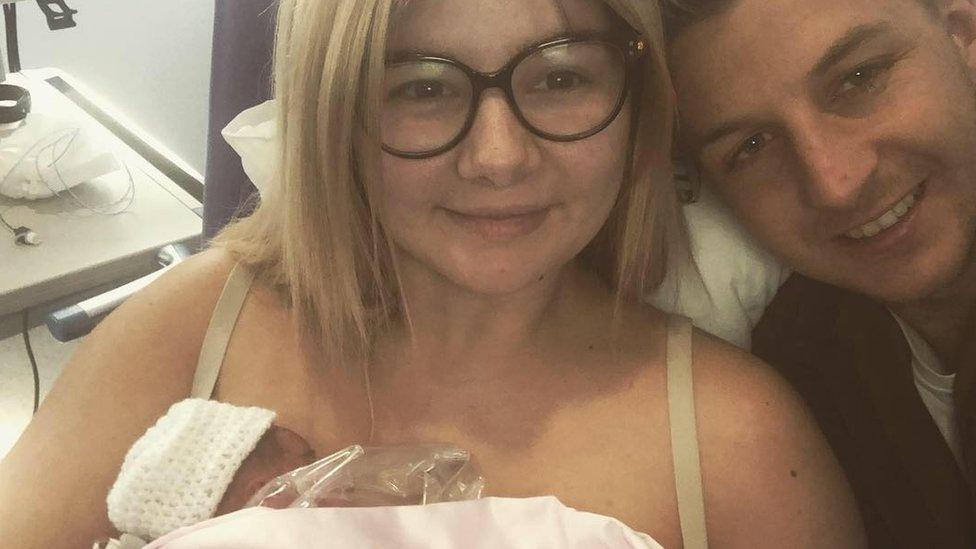Wrexham hospital's bell to mark end of babies' treatment
- Published
"It gives you such a rush, it's such an amazing feeling"
"Nobody enters a pregnancy thinking they'll end up with a baby on SCBU [special care baby unit], it's not the journey that they've chosen, but it's the journey they've been given."
For parents with babies on a special care unit it can be one of the scariest and worrying times of their lives.
But at Wrexham Maelor hospital, they make sure when a baby is ready to go home, they mark the occasion in a positive way.
An "end of treatment" bell has taken pride of place on the unit.
Nurses and staff on the ward along with the baby's family read out a verse and ring the bell to mark the end of treatment - an occasion where there "isn't a dry eye", according to the ward's manager Karen Hughes.
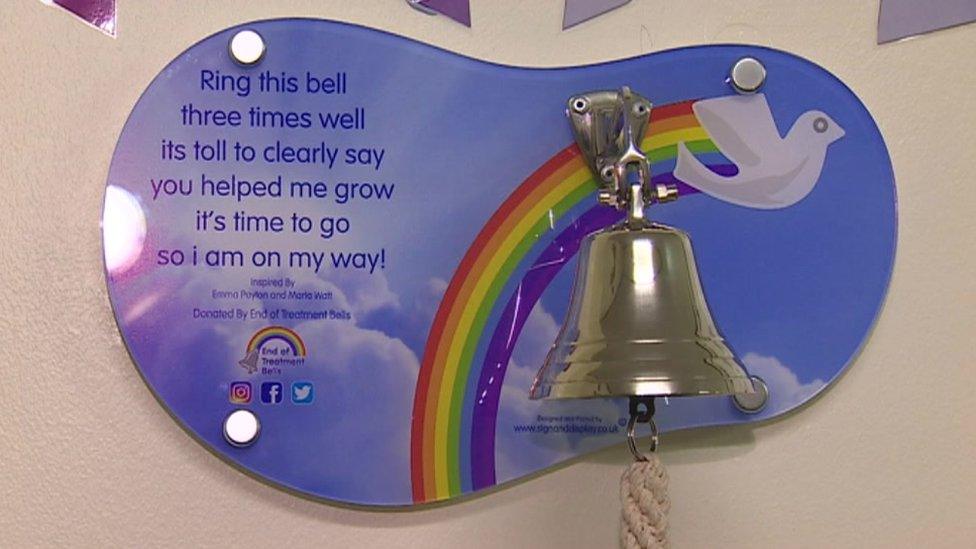
Parents can ring the bell and read the verse when their baby leaves hospital
Theo Shaw was born 12 weeks early, weighing just 2lb 11oz (1.2kg).
He spent more than two months in intensive care.
For his mother Amanda Shaw, 40, from Wrexham "it was a very, very, worrying time".
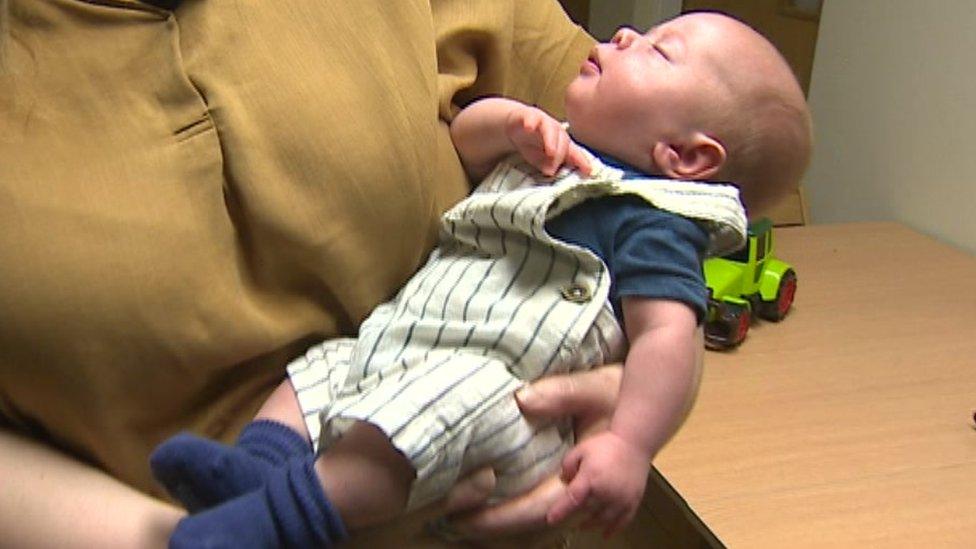
Theo is now home and doing "really, really well"
"He had chronic lung disease, which is very common in premature babies.
"It was quite traumatic seeing Theo with all these tubes and things helping him to breathe."
Amanda and her husband Stephen - who also have a daughter Amy, 21, and son Ethan, 10 - were the first to ring the bell.
"I started to choke a little bit, because I was like 'this is really happening', because you don't truly think it's going to happen until it does.
"It gives you such a rush, it's such an amazing feeling because it signifies Theo's journey and ended his treatment.
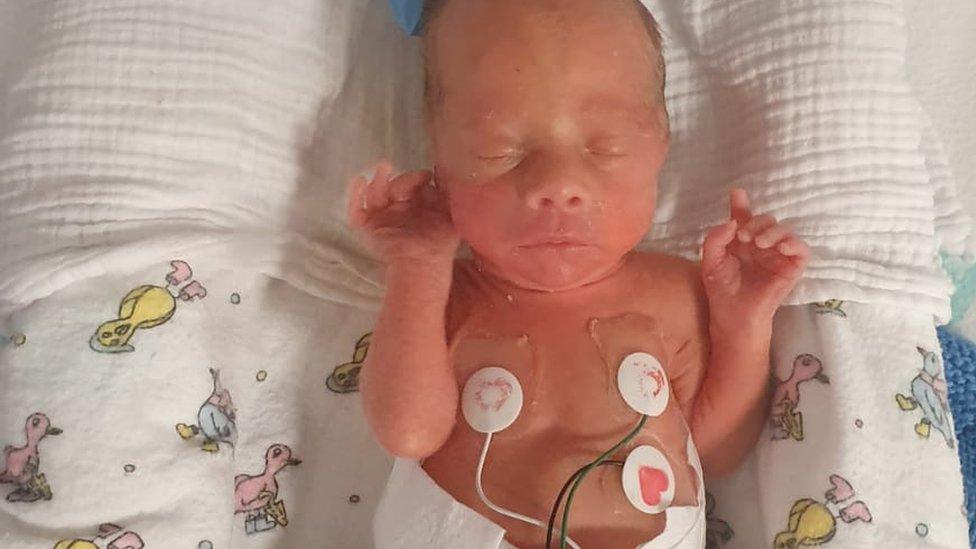
Theo was born 12 weeks early and weighed less than three pounds
"He's gone through the worst of it, he's gone through the biggest storms ever.
"It was positive vibes everywhere, because everyone is just as happy as you."
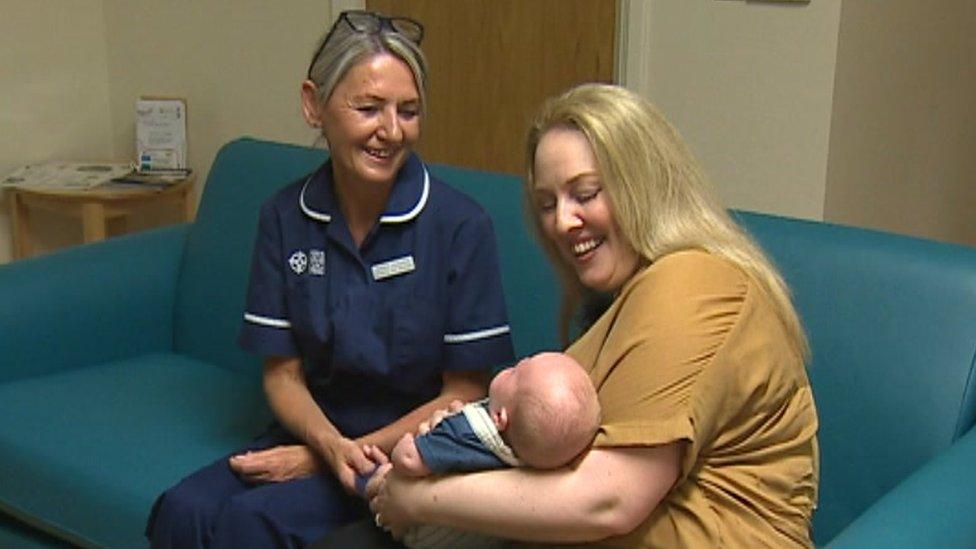
Amanda and Theo on a return to the unit with ward manager Karen Hughes
Mrs Shaw said Theo has now been home for one month and is "doing really, really well," but still needs oxygen at night.
"He now weighs 10lb 6oz (4.7kg) and is three and a half months old," she added.
Louise Jones, 35, from Llay is in the unit with her daughter Shelby-Lou who was born almost two months early, weighing just 1lb 11oz (765g).
"It's something to look forward to and know that you can hit that milestone and that achievement... and then you can start a new beginning," she said.
Karen Hughes said the ceremony of the bell-ringing is "an amazing achievement when you've cared for these babies and you see them going off the ward".
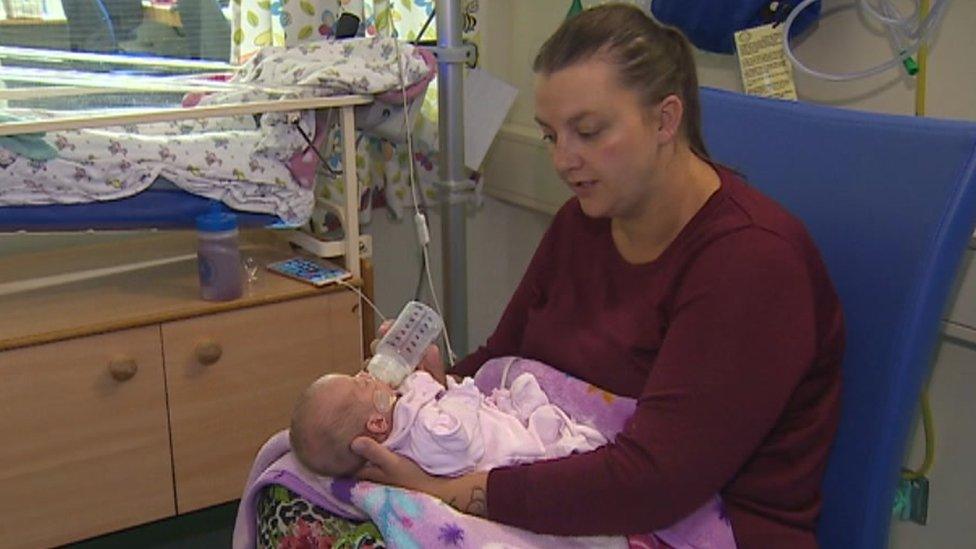
Shelby-Lou was born two months early and weighed less than two pounds
"It's time for the parents and the staff to reflect on what a wonderful team has been around this family and helped support them and we do get emotional.
"There isn't a dry eye when the mum or dad reads the verse and rings the bell - we all feel it.
The bell was donated by the End of Treatment Bells, external organisation, set up by Tracey Payton and her husband Phil.
Their daughter Emma rang an end of treatment bell after leaving hospital in Oklahoma, United States, where she was being treated for a rare soft tissue cancer.
"We loved it, we were counting down the days to ring it.
"We showed the video to the ward manager in Manchester when we got back and offered to have one made, it was only ever going to be one bell," Mrs Payton said.
But demand soon grew for bells on other wards.
The couple set up a Facebook page and began raising money to provide bells to hospitals around the UK.
"Some people will never finish their treatment and we're very mindful of that, but it was a goal for us.
"She'd [Emma] got through this, it should be marked in some way.
"You see families just leave, it's such an anticlimax.
"I think I'd have felt really cheated if that was it... it's really unfair that they're there in the first place."
- Published4 August 2019
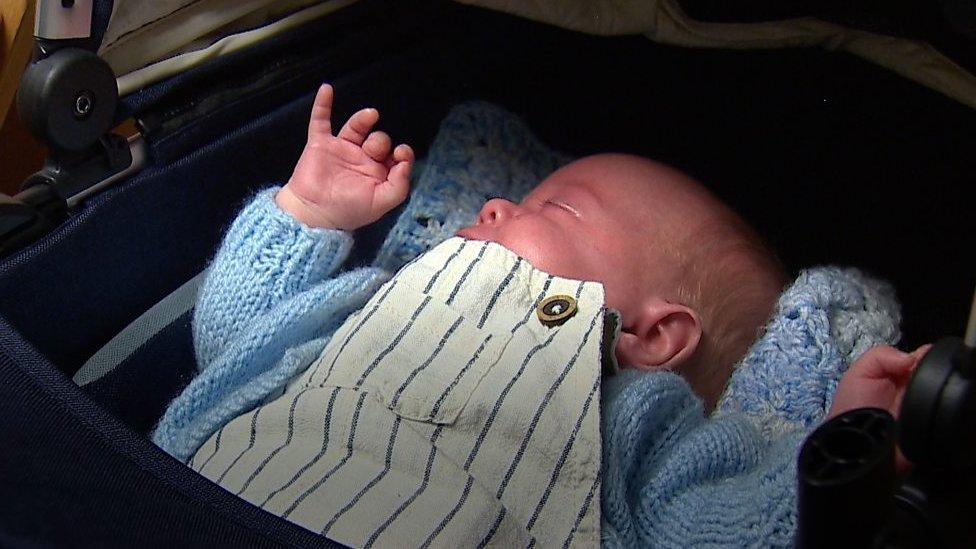
- Published19 February 2019
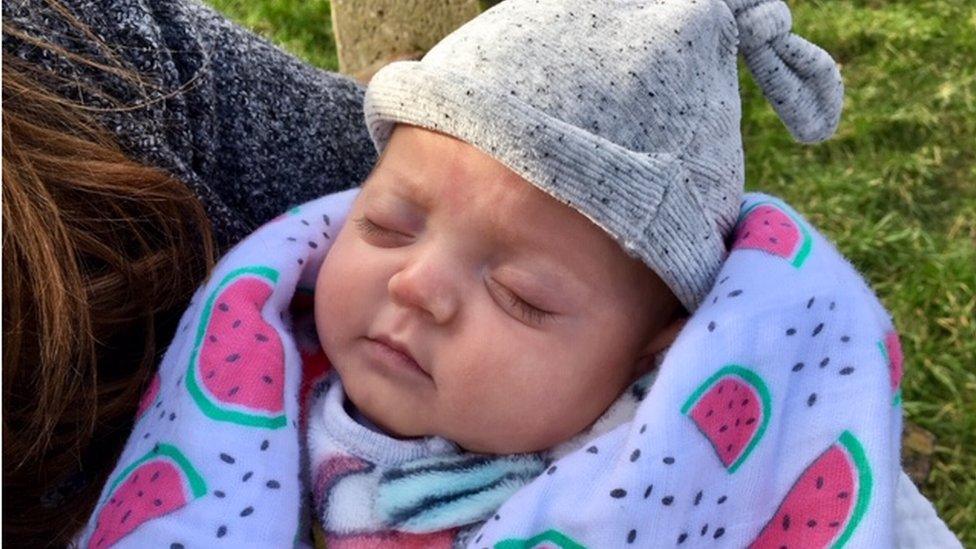
- Published25 December 2018
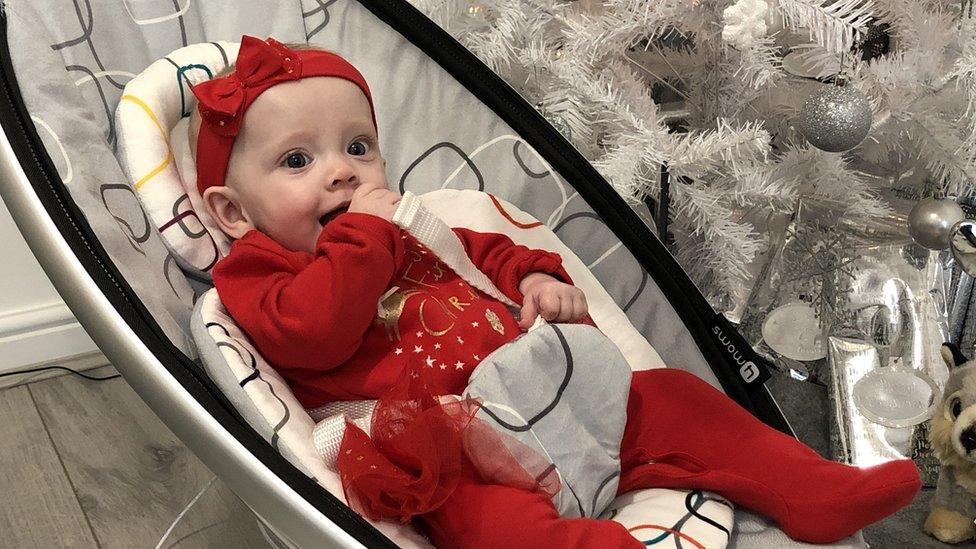
- Published19 December 2018
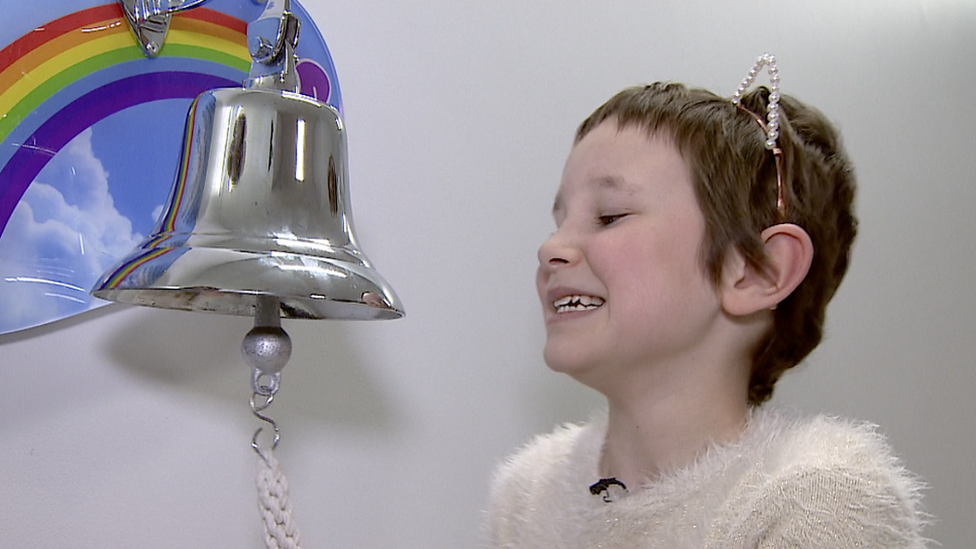
- Published28 October 2018
